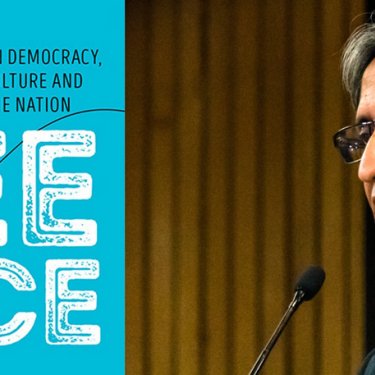Escalation in threat campaigns against Indian journalists

Reporters Without Borders (RSF) is appalled by a campaign of death threats against well-known anti-establishment TV journalist Ravish Kumar by trolls linked to the Hindu nationalist right, which has escalated dramatically in the past month, a year ahead of general elections.
Reporters Without Borders (RSF) is appalled by a campaign of death threats against well-known anti-establishment TV journalist Ravish Kumar by trolls linked to the Hindu nationalist right, which has escalated dramatically in the past month, a year ahead of general elections.
It would seem from Ravish Kumar’s revelations last week that fear is now an integral part of the life of outspoken journalists in India. The NDTV anchor reported on 24 May that the threats he has been getting on his phone since 2015 have increased sharply in number and virulence since the end of April.
“It is all well organized and has political sanction,” he told The Hindu newspaper.
He said the latest threats included a video message from a former member of the military who said he would shoot Kumar in his office. A message from a person claiming to be a member of the Bajrang Dal, a right-wing Hindu nationalist youth group, included details of Kumar’s home address and the route he takes to go to work, and threatened to rape the women in his family as well as kill him.
The many complaints that Kumar has filed with the police in Ghaziabad and Greater Kailash, in the outskirts of New Delhi, have had no effect.
“Everything must be done to protect Ravish Kumar,” said Daniel Bastard, the head of RSF’s Asia-Pacific desk. “It is also high time that the Indian government took concrete measures to stop these waves of threats against journalists who dare to question the authorities. These insidious mass intimidation methods foster a noxious climate of self-censorship that undermines the foundations of Indian democracy. By supporting these actions, the ruling party bears a heavy responsibility in the decline in press freedom in India.”
“Republic of Fear”
The start of this wave of threats against Kumar coincided clearly with the publication of his book, The Free Voice, in which he describes the disturbing decline in the Indian media since Narendra Modi became prime minister in 2014.
He writes that the “new India” has become of “Republic of Fear” with the help of the ruling Bharatiya Janata Party’s “IT cell” and its troll army. In the eyes of these BJP “goons,” as he calls them, any critical coverage of the government is anti-Modi, anti-Hindu and anti-national, and must be met with death threats.
This is exactly what happened to Rana Ayyub, a freelance woman journalist who was the target of an unprecedented harassment campaign in April. After RSF referred the case to Agnès Callamard, the UN special rapporteur on extrajudicial, summary or arbitrary executions, she and four other UN special rapporteurs issued a joint statement last week calling on the Indian authorities to protect Ayyub.
But so far nothing has been done, so RSF wrote today to Prime Minister Modi urging him to take the necessary action and to do everything to identify those responsible for this mass harassment.
Nightmare
Any kind of journalist can now be the target of hate and threat campaigns. Life for film critic Aparna Prasanthi in southern India became a nightmare after she panned Naa Peru Surya, Naa Illu India, a film released at the start of May that lauds nationalist feelings. Her Facebook account was flooded with rape and death threats after her review was published.
India is ranked 138th out of 180 countries in RSF's 2018 World Press Freedom Index, two places lower than last year.



